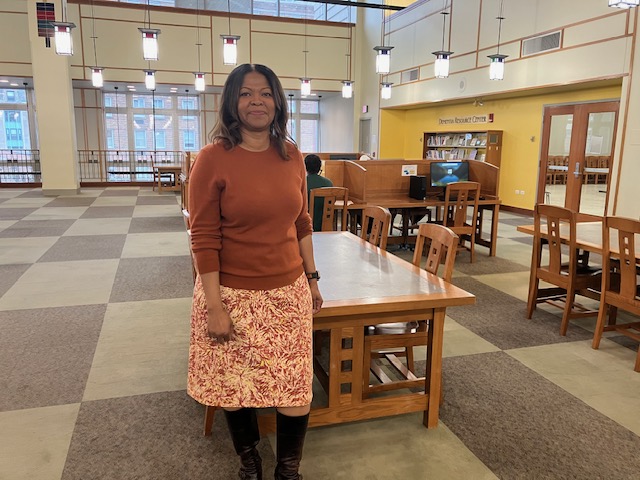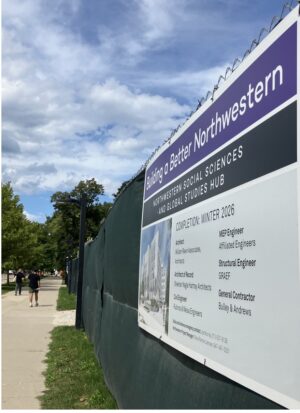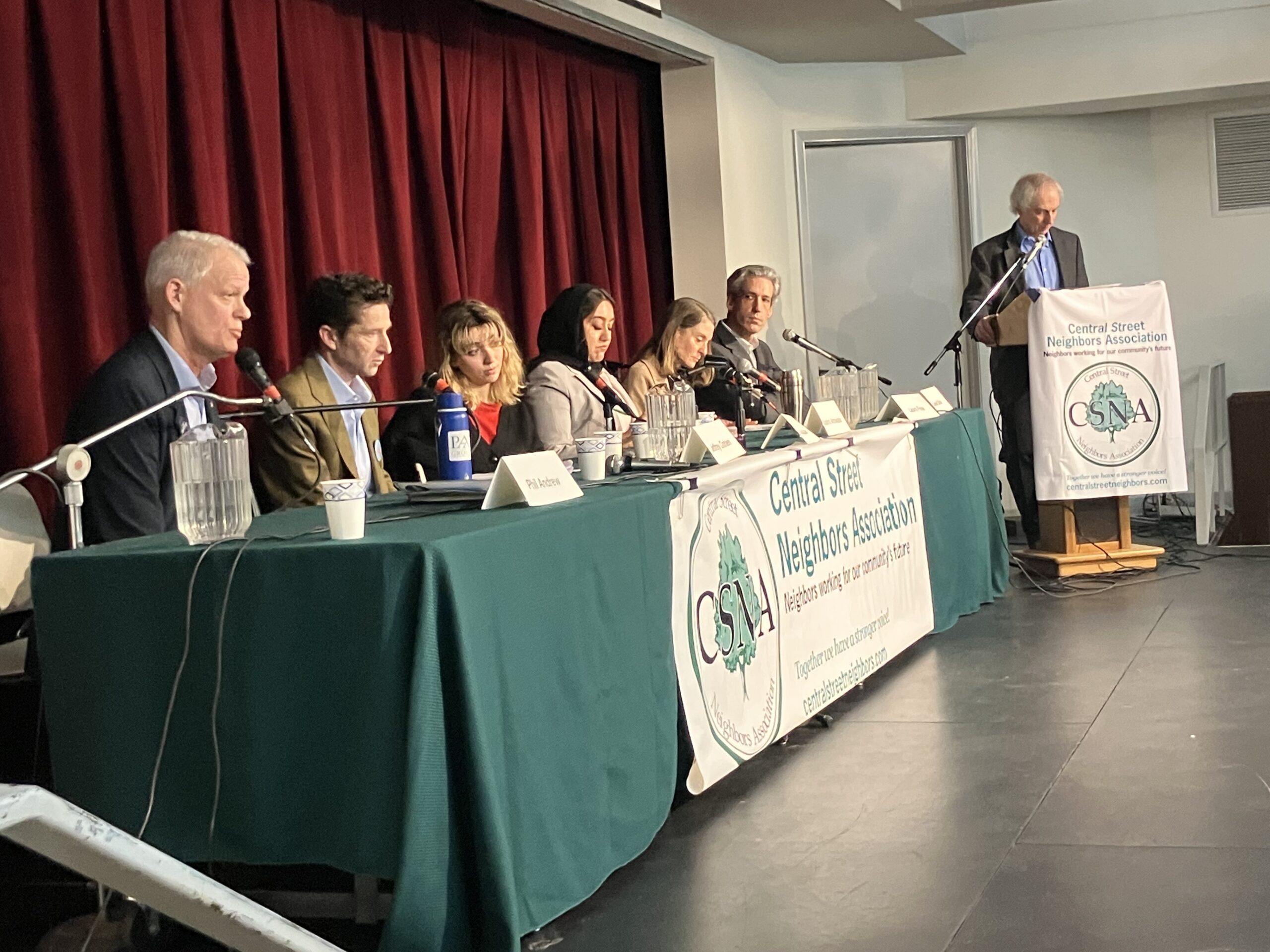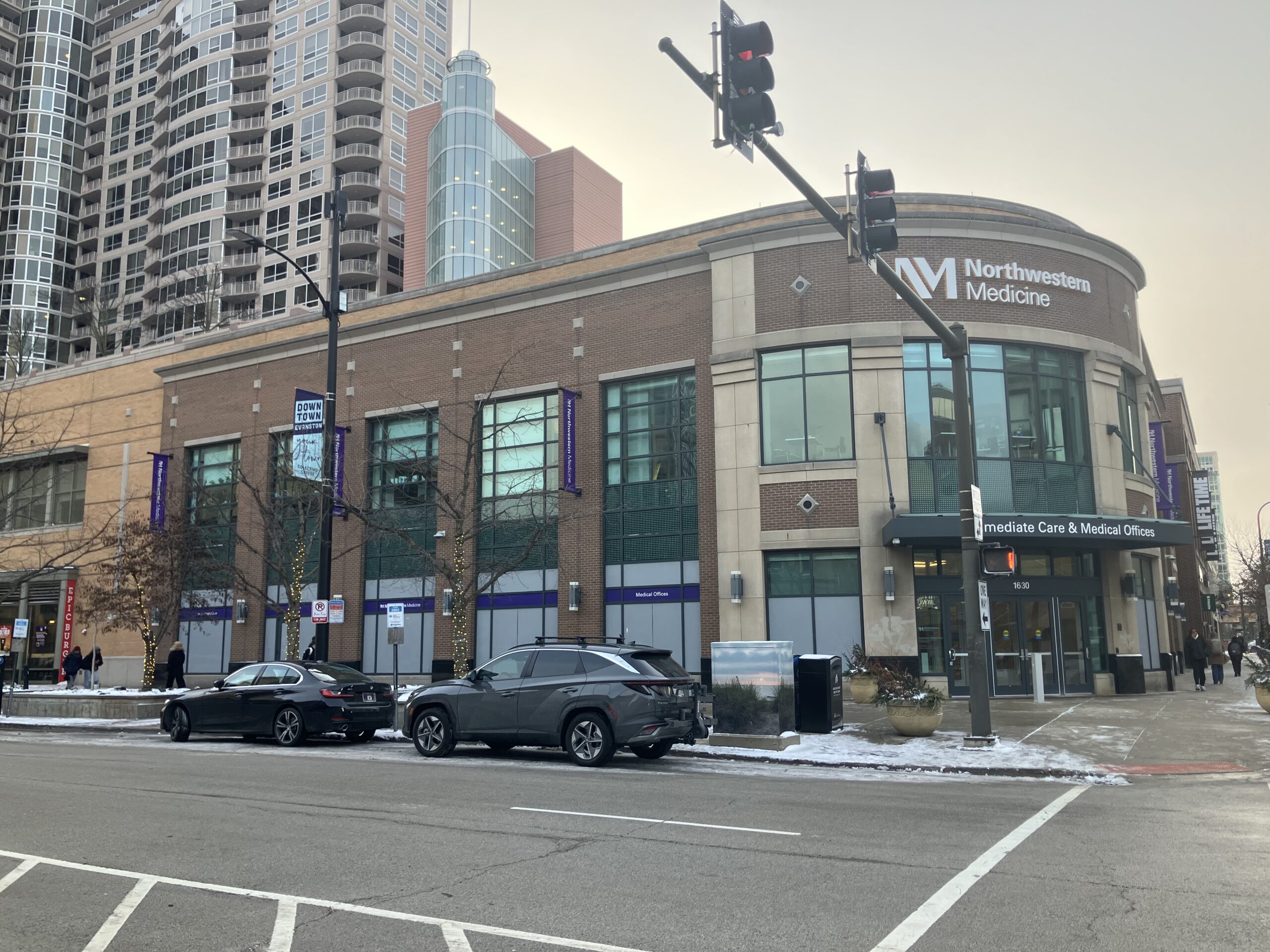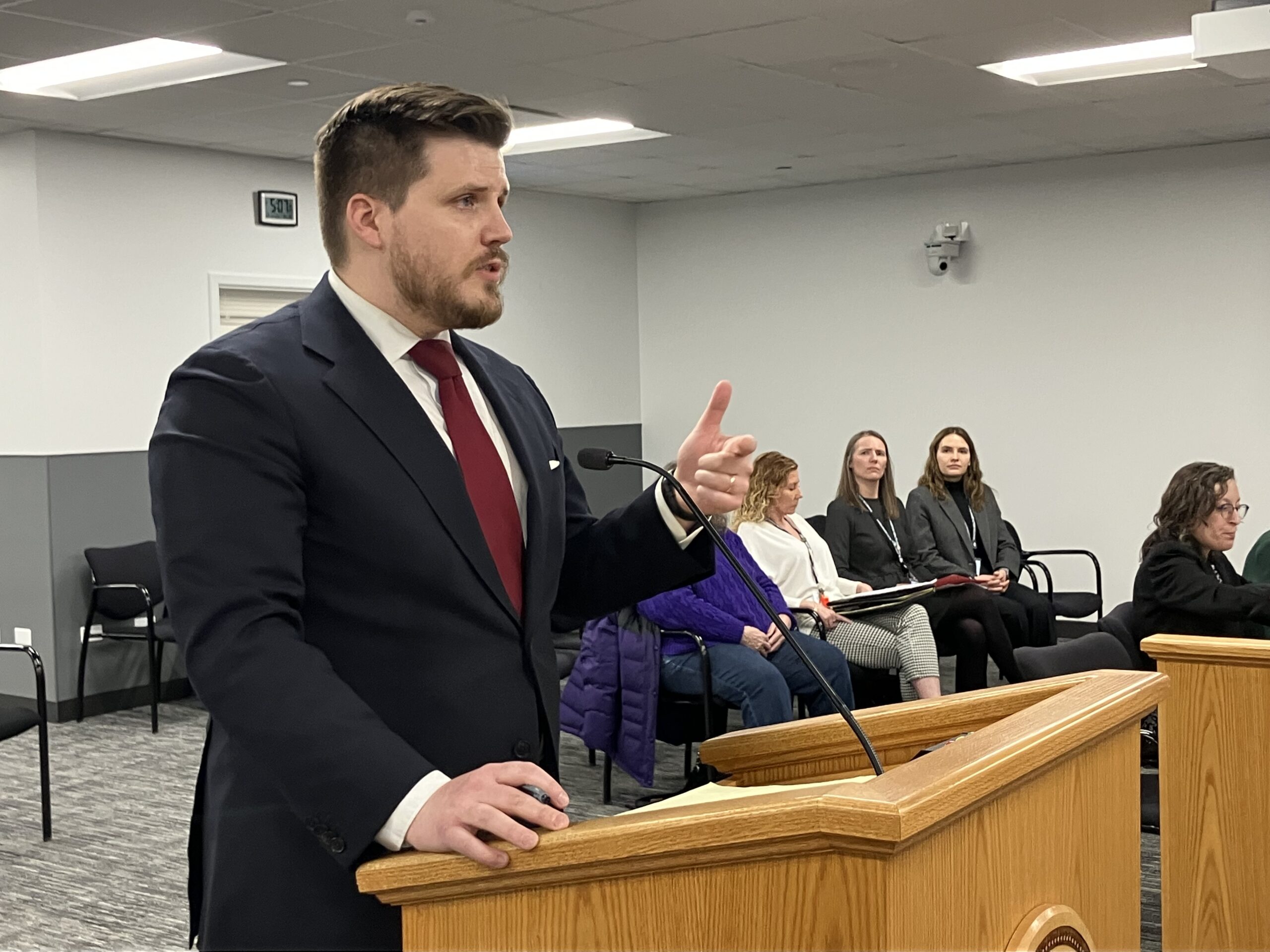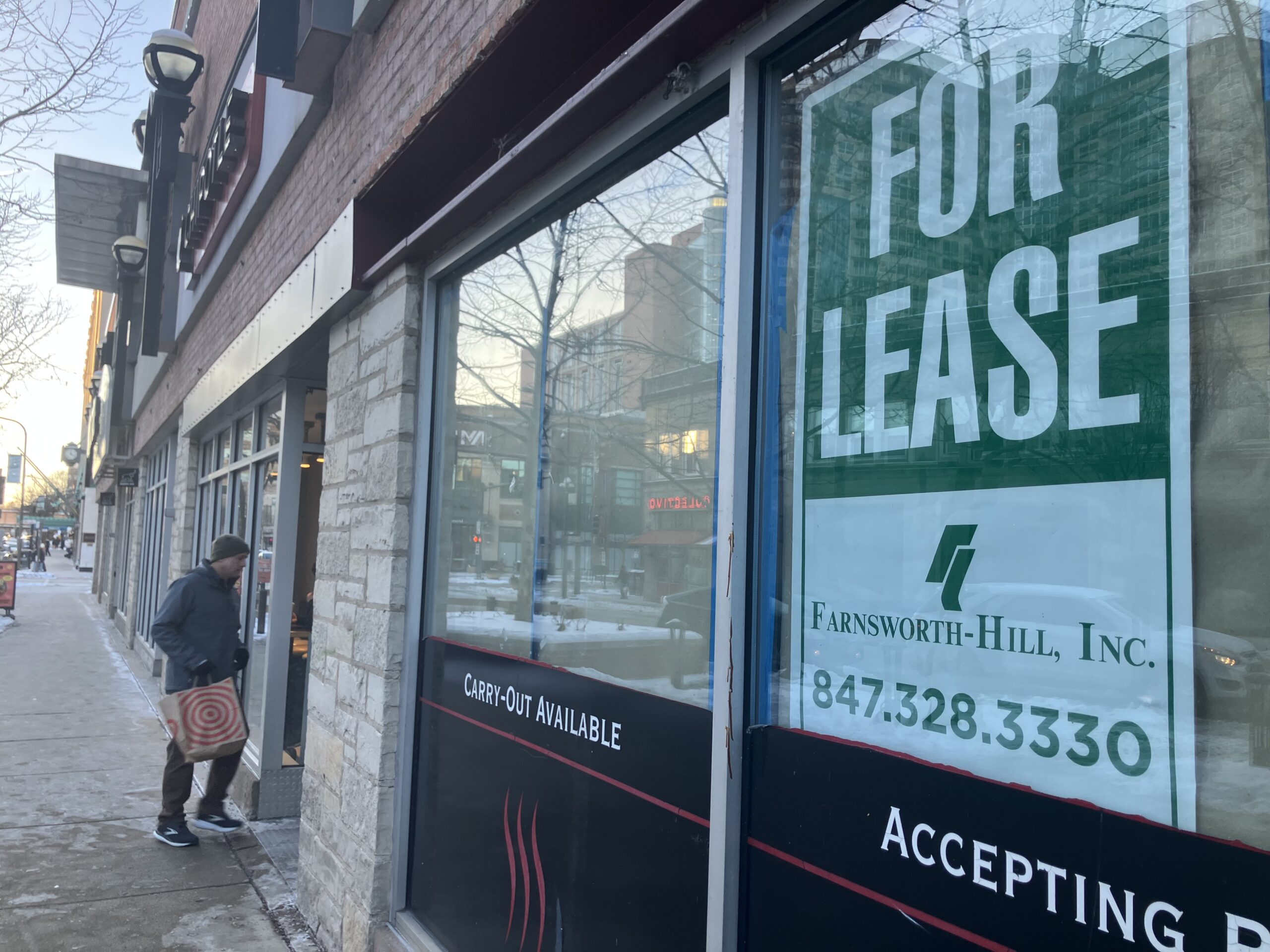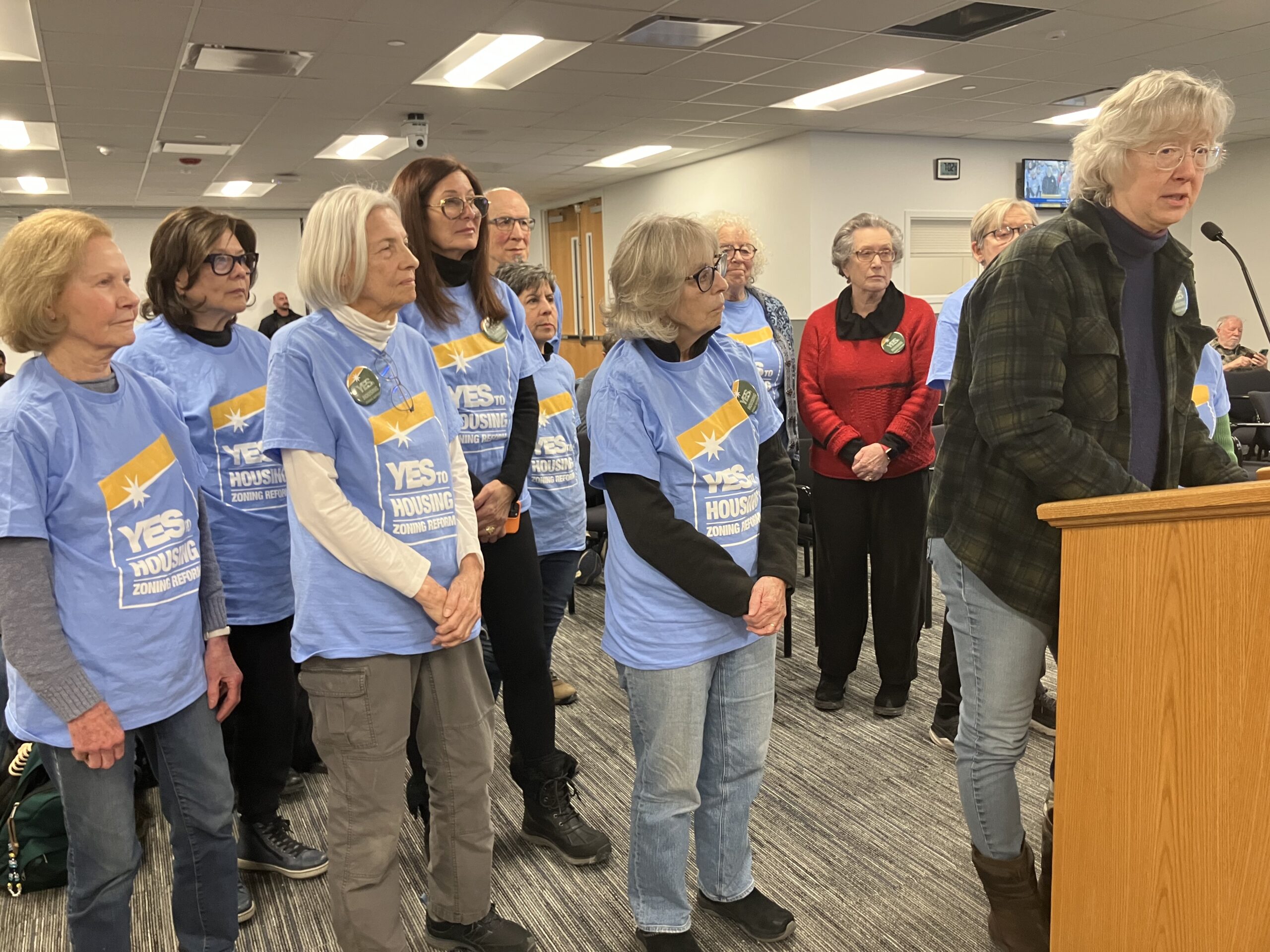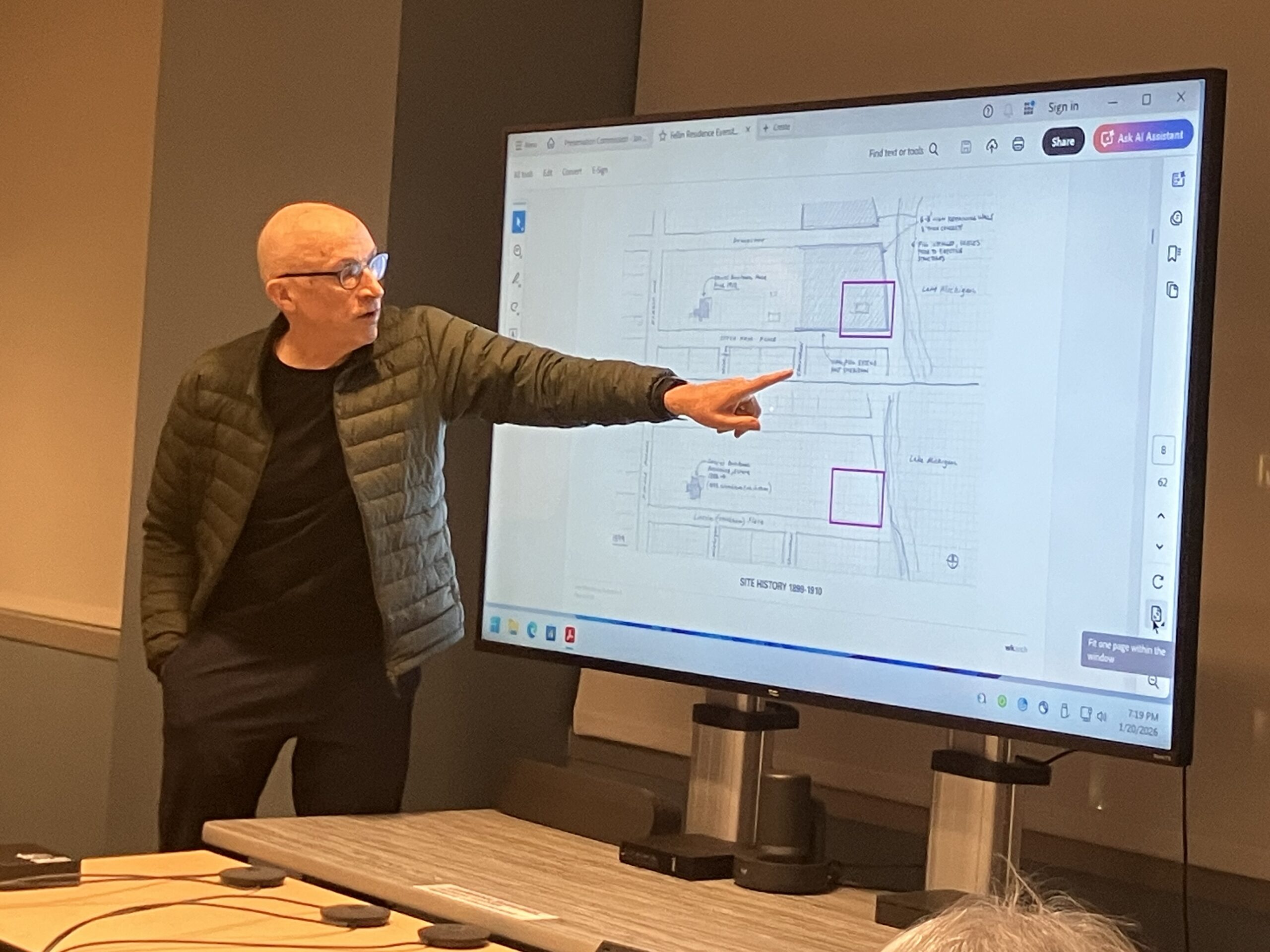By Bob Seidenberg
Evanston Public Library officials have plenty of pros and cons to consider as they explore whether to try breaking away from the city and forming a separate library district.
James Rachlin, the consultant who library trustees brought in to help them make that decision, laid out some of the considerations in a presentation at an Aug. 6 special board meeting.
Members of a previous EPL board took an intermediate step toward independent status in 2012, when the city adopted a library fund model. Library officials had grown tired of the library’s budget getting lumped in with other city departments, and facing repeated cutbacks from the city.
The library fund model gives the appointed library trustees the authority to formulate and approve the annual budget and determine the annual levy of taxes for library purposes.
However, the elected City Council (with responsibility for roughly a $400 million budget versus the library’s $10 million) still has the authority to reject the library’s request and require trustees to develop a new proposal.
Advantages of remaining with the city
Rachlin, in his preliminary report, found the current system’s “levy-setting mechanisms and access to borrowing capacity” give library officials “a lot of flexibility, options they wouldn’t have if not part of a Home Rule municipality.”
With home rule status, “Evanston can basically set its own rules around its finances — how it does its levy, how and when it borrows, how much it borrows, how much it taxes residents,” Rachlin told trustees. “And that flexibility is important because all of that flexibility extends to you as well.”
Assuming annual tax levy increases of 5% (which would add just under $12 to last year’s library tax bill), the library should be able to maintain a healthy fund balance of 58% of annual expenses by year end, Rachlin said. In contrast, the city’s own reserve fund, once in that healthy range, could be depleted by the end of next year without an infusion of new revenue, one official recently predicted.
On the other hand, Rachlin noted, “these numbers ignore the $19 million renovation, $1.9 million roof repair to the main library building, and additional capital needs.”
In seeking backing from city officials, he told trustees, “you’re really subject to their political preferences, right? They’re going to put pressure on you whether they’re legally allowed to or not. They’re going to put pressure on you to control how you go about things, how much you ask for, and what will that be? There’s going to be a lot of back and forth. You have to accommodate that to a certain extent.”
In addition, he said, the library is paying the city for essential services that some municipal libraries and most district libraries provide for themselves.
Cap on tax increases is also factor
Rachlin, founder and president of Meristem Advisors, advised the Aurora Public Library on its successful breakaway to an independent district in 2020. He offered some other key points:
- If the library were to separate, it would become subject to the state’s Property Tax Extension Limitation law. Under PTELL, the library’s annual increase in levy would be limited to inflation (or 5%, whichever is less) plus new property. Anything higher than that would require the taxing body to put the question to a referendum. Public school districts are also subject to the tax cap.
- Further, the library would have to monitor the city’s tax increment financing districts, since the incremental property value of expiring TIFs can only be captured in the year they are expiring.
- If the library were to adopt a district library model, the personal property replacement tax would come into play too. Established in 1979, that tax was an effort by the state to replace the money cities lost when their authority to impose personal property taxes on corporations and other business entities was taken away. Public safety pension leaders have already wrestled with city officialsover disbursement of those tax revenues, maintaining that only a very small percentage of the $32 million generated by the tax between 2002 and 2022 had gone into public safety pensions, one of the recommended areas.
Recommendation for firm agreement with city
Library officials should make sure agreements with the city confirm the city’s obligation to forward the library’s share of the revenue from the personal property replacement tax, and trustees should be prepared to take “remedies if they fail to do so,” Rachlin said.
Library Executive Director Yolande Wilburn said at the meeting that there is no indication the library has received any such funds up to now.
Logistical issues are a challenge in moving to fully independent status, Rachlin also found.
Currently, the city’s human resources and administrative support staffers “provide a lot of services to you, which you think is helpful,” he said, “but you’re also paying for those services, and you really don’t have control on how these services are managed.”
Also, “Municipal employees and Library employees are focused on different requirements, but are part of the same union,” he observed in his report.
The yin and yang of city control
”Human Resources functions must go through the City, delaying hiring and termination decisions,” Rachlin said in the report.
“Information Technology services are not optimized for a library. Their priorities are not necessarily your priorities,” he said, recapping discussions he’s had with library officials: ‘You can’t get stuff done effectively.’ I’ve heard that expressed as a source of some frustration.
“At this point what some libraries have done is separate from the city. All those issues become under your control and you’re on your own. You lose the support of the city. You lose those services that they have been providing. You have to start self-dividing those things.”
Library employees would continue as a bargaining unit but probably under a new labor contract if there were a change, he said.
Rachlin told trustees that the assumptions in his model indicate the library’s union staffers would receive “a lower escalation rate of wages” than they would if they remained workers at a city library. Council members approved a four-year 20% across-the-board increase in 2023.
On the other hand, library employees might accrue other benefits, Rachlin said. “You know, we’re open seven days a week,” he noted. “The city is not. Our employees like flexibility, right? So they may want to flex their schedules, which they can’t do under the current contract. So we’re anticipating that our employees may want to negotiate other things … there might be some trade-offs within that negotiation.”
Library trustees have maintained financially stable operations, he said.
Capital challenges, repairs hang over library officials’ heads
Another 5% tax increase for 2026 could increase the library fund’s balance to $745,000, leaving $500,000 for building improvements and $245,000 to bolster administrative functions, including bringing on full-time, dedicated human resources personnel, Rachlin said.
“However there is no capacity for significant capital investment, requiring reliance on the City,” he wrote in a report note.
“You have capital needs, as you well know,” he said to the board. “You have this roof project hanging over your head, so to speak. You have a renovation project that would cost as much as $19 million that you’ve taken a look at. There’s no capacity to deal with that project or those needs from this very healthy-looking pro forma [financial statement]. So you can operate on this basis year after year, but meanwhile the buildings get increasing challenges.”
That financial standing also doesn’t account for other services the library might want, especially in human resources and gaining greater control over building maintenance “so that you’re not completely reliant for every detail in the building on the city, various technology updates, administrative costs, additional programs, materials and supplies.”
Separation carries costs
Rachlin estimated financial costs for becoming an independent district ranging from $1.6 million to $2.25 million.
Separating from the city would require efforts on multiple fronts, he said. Support from the city — which the library has been wrestling with for close to a year, trying to win an intergovernmental agreement — may be foremost, he said.
“You need to get the city’s buy-in, because the other alternative, which is to go vote yourself into becoming a district … that’s a tough route. A lot of work, plus you don’t just get granted the financial wherewithal to succeed the way the city can set you up.”
Rachlin said the final levy to go through the city could include the $20 million of debt service, “which I think it should, in order to succeed,” he told the trustees.
He said resolving building ownership — both the main library and the Robert Crown branch are owned by the city — is among other issues that would need to be worked through if separation were to be the ultimate choice.
The actual legal agreement in support of separation is pretty straightforward, he said.
Trustees didn’t take a vote at the meeting. Rachlin’s presentation was intended to be strictly informational.
Rachlin, a former municipal banker for close to 25 years, started his own firm about six years ago. He now represents between 70 and 80 library districts in Illinois.
Board President Tracy Fulce noted that Rachlin had worked with a number of libraries in the separation process, and asked him about the reasons clients would go from being a municipal library to one with independent status.
Rachlin said the motivating forces “were very similar to your situation.”
Some libraries, he said, had gotten to the point where Aurora was, “where they literally were running out of money during the course of the year and having to have the city float them the money, because the city wanted to hold them so tight to the line that there were no extra dollars anywhere, and it just wasn’t tenable.”
- Another force at work, he said, is that some cities might want to lower their taxes. “And there’s this slice of taxes for the library every year, and they’re like, ‘Well, if get rid of the library then we can say we lowered the taxes, right?”
